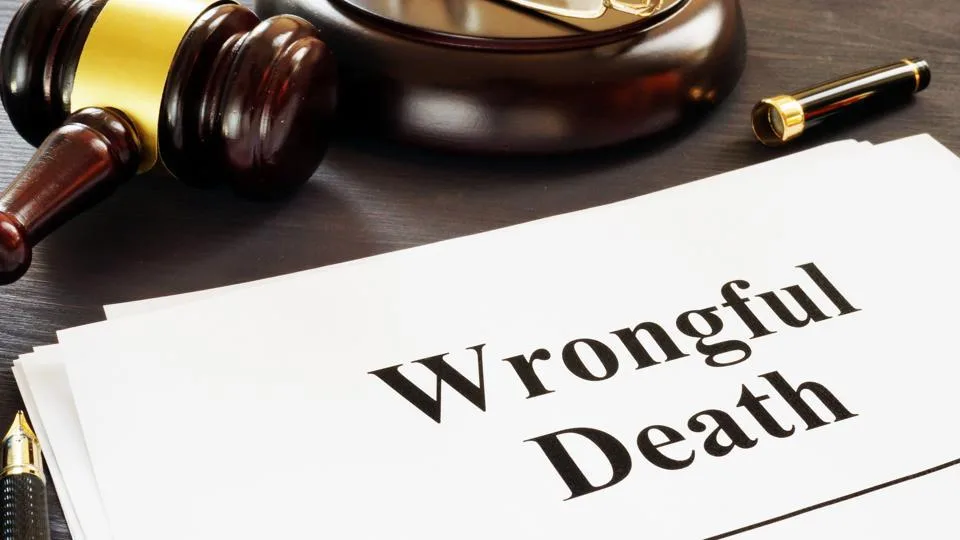Losing a loved one is one of the most challenging experiences anyone can face. When that loss is due to someone else’s negligence or wrongful actions, the pain can be even more profound.
Understanding Wrongful Death Claims
What is a Wrongful Death Claim?
Fatal accident claims, as they are also known, describe a legal action pursued by the surviving family members or beneficiaries of a deceased individual against the party responsible for the death. These claims seek to hold the negligent party accountable for their actions and provide compensation to the deceased’s loved ones for their loss.
Types of Fatal Accidents
Wrongful death claims can arise from various types of fatal accidents, including:
- Car accidents
- Medical malpractice
- Workplace accidents
- Criminal acts
- Defective products
Legal Framework for Wrongful Death Claims
Who Can File a Wrongful Death Claim?
In the UK, the law allows certain family members or dependents to bring a wrongful death claim. Typically, this includes:
- Spouse or civil partner
- Children (including adult children)
- Parents
- Siblings
- Anyone who was financially dependent on the deceased
Proving Negligence
To succeed in a wrongful death claim, the claimant must prove that the death was caused by the negligence or wrongful actions of another party. This often involves demonstrating:
- Duty of care: The defendant owed a duty of care to the deceased.
- Breach of duty: The defendant breached that duty through negligent or wrongful conduct.
- Causation: The defendant’s actions directly caused or contributed to the death.
- Damages: The claimant suffered losses as a result of the death.
Statute of Limitations
It’s important to note that wrongful death claims are subject to a statute of limitations, which dictates the time limit for filing a claim. In the UK, this limit is generally three years from the date of death. However, there are exceptions to this rule, so it’s essential to seek legal advice promptly.
Pursuing a Wrongful Death Claim
Consulting with Legal Experts
Navigating the complexities of a wrongful death claim can be daunting, especially for grieving families. That’s why it’s crucial to seek guidance from experienced solicitors who specialize in personal injury and wrongful death cases. A legal expert can assess the circumstances surrounding the death, advise on the viability of a claim, and advocate for the family’s interests throughout the process.
Gathering Evidence
Building a strong case requires gathering evidence to support the claim of negligence or wrongful conduct. This may include:
- Witness statements
- Accident reports
- Medical records
- Expert testimony
Negotiating with Insurance Companies
In many cases, the party responsible for the death may be covered by insurance. Dealing with insurance companies can be complex, and they may attempt to settle the claim for less than it’s worth. Having skilled legal representation can help ensure that the family receives fair compensation for their loss.
Litigation as a Last Resort
While most wrongful death claims are resolved through negotiation or mediation, litigation may be necessary if a fair settlement cannot be reached. Going to court can be a lengthy and emotionally draining process, but it may be the only way to achieve justice and hold the negligent party accountable.
Compensation for Wrongful Death
Types of Damages
In a wrongful death claim, compensation, also known as damages, may be awarded for various losses, including:
- Loss of financial support
- Funeral and burial expenses
- Loss of companionship and consortium
- Medical expenses incurred before death
- Pain and suffering of the deceased prior to death
Calculating Damages
Quantifying the value of a wrongful death claim can be challenging, as it involves assessing both economic and non-economic losses. Factors such as the deceased’s age, earning potential, and family circumstances will be taken into account when determining the appropriate level of compensation.
Seeking Closure and Justice
While no amount of money can ever fully compensate for the loss of a loved one, pursuing a wrongful death claim can provide a sense of closure and accountability.
Supporting Grieving Families
Emotional and Psychological Support
In addition to legal assistance, grieving families may benefit from emotional and psychological support to help them cope with their loss. Counselling services, support groups, and community resources can provide much-needed comfort and understanding during this difficult time.
Financial Assistance
Losing a loved one can have significant financial implications, especially if the deceased was a primary breadwinner. Families may struggle to cover expenses such as mortgage payments, childcare, and day-to-day living costs. Exploring avenues for financial assistance, such as government benefits or charitable organizations, can alleviate some of the financial burdens.
Conclusion
While the road to justice may be long and arduous, it’s a journey worth taking to ensure that no family has to endure the pain of a wrongful death alone.



